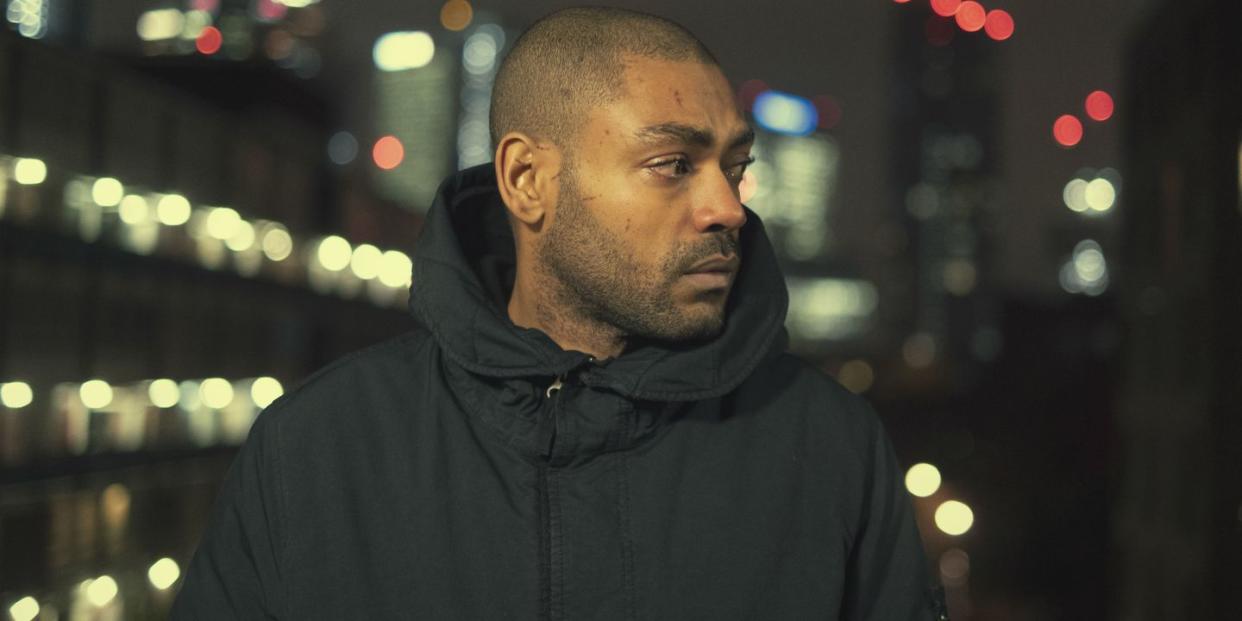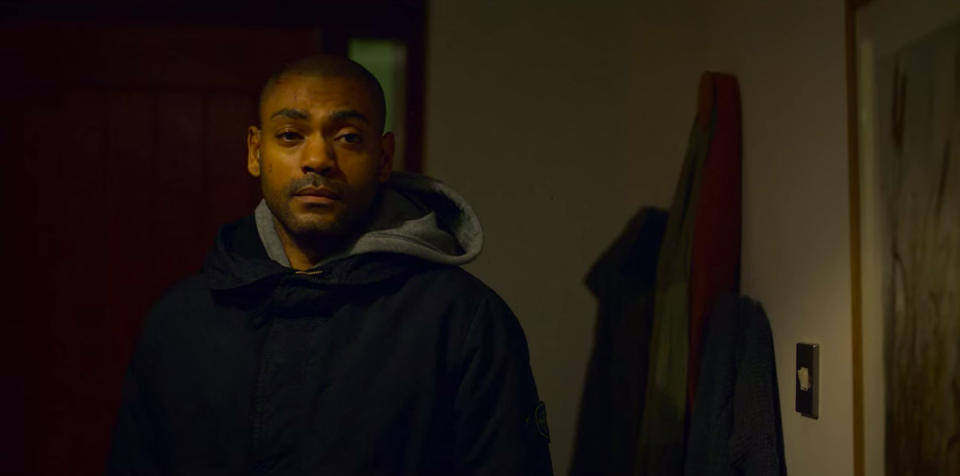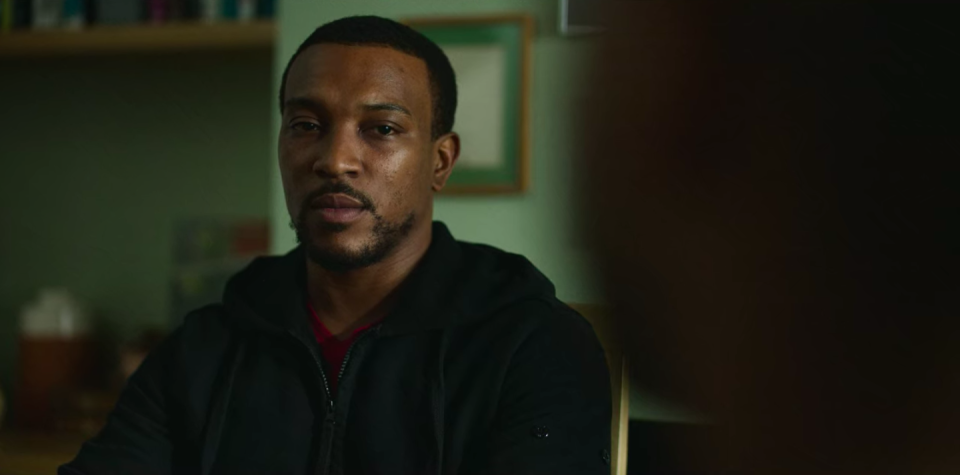How Top Boy's Sully upends expectations in Netflix's debut season

Gritty, unnerving and a stark look at the tense social climate among some of the city's most vulnerable groups, Top Boy is set in east London's social-housing estates, linking stories of families, youth, law enforcement and rival drug-dealing gangs.
It's both a revival and continuation of the original Channel 4 series, which gave us two seasons before being axed. As a huge fan – and not wanting to see it go – US music artist Drake bought the rights to the show, executive producing the latest season for its relaunch on Netflix.
Some critiques of season three have branded Top Boy as a show that 'glorifies gang culture' and reinforces negative stereotypes of black people, particularly black men. Yet season three has painted gang culture in the most gruesome, bleak light possible. It has portrayed violence, drug crime and the grooming of young people to join gangs as a desperate hellscape, with most of it set in dark corners and drug dens inside gutted houses.
The idea that it reinforces negative stereotypes of marginalised groups, particularly black people, completely misses the point. The stories told throughout this season were mostly birthed by circumstances beyond the characters' control, handed down by a lack of opportunity, a racist climate, the coercion of minors by adults who were likely once victims of the same treatment, and a hostile political approach to immigration.
These stories need to be told and they deserve to be heard.
Sully (played by grime artist Kano) does the most thorough job of forcing us to confront this reality. Even from the opening of the second episode, there's a marked shift in his demeanour from previous series.
Former co-kingpin of the Summerhouse estate, we see the once-notorious gang leader in prison, set a number of years after the close of the former season, looking slightly detached and without the zeal for being at the top of the game that defined his character throughout the first two seasons.

Related: Top Boy beats Unbelievable and 13 Reasons Why as most-watched show on Netflix
His relationship with close confidant and gang partner Dushane Hill (played by Ashley Walters) was at breaking point by the end of the last season and it seems as though they hadn't been in contact at all for years.
The disintegration of Sully and Dushane's close-knit, partners-in-crime relationship was a bitter betrayal on Sully's part, with Dushane essentially stripping him of his status and senior involvement in their drug trade by the end of season two after he made some reckless decisions.
We also saw a rough-around-the-edges parental-type relationship develop between Sully and pre-teen Jase (played by Ricky Smarts) who's the neglected child of a drug addict mother, both of them physically abused by her violent, drug addicted partner.
This relationship has blossomed and strengthened by season three, with Jase now a young adult, the only one who seems to have consistently visited Sully in prison, along with being the only one to greet him on his release – something that Sully seems deeply grateful for, especially so because most of his former gang family seem to have abandoned him.
His bewildered shock and empathy towards Jase as he casually explains away the horrific death of his drug-addled mother, as if it was nothing. His blind anger, too, once he finds out Jase has been using opens up a side to Sully that we've rarely seen before – he genuinely cares for Jase.
We only expected the big, bad, and infamously cold-blooded Sully to ramp up his remorselessness and tunnel vision for the prize of being on top, being feared, and having nobody dare to cross you twice.

Kano delivers these same fierce key components but with an added layer of trauma and emotional vulnerability that's made Sully the most loved and relateable protagonist of this season. He's still not someone to be challenged or crossed, he'll still get the job done, with guns ablaze or his bare hands if he has too, but there's a level of dissociation from it now – like he goes into autopilot when carrying out violence, rather than being fully present.
The scene that saw Jase engulfed and killed in a house blaze as the result of a racist hate crime was one of the hardest to watch, with viewers drawing parallels between it and the Grenfell blaze.
This moment is life-changing for Sully, and for the rest of the season we see him grapple with the haunting enormity of what's happened, the guilt and the crippling loss, as he navigates other hard to swallow setbacks – like watching his former partner and daughter move on with her new partner and another baby on the way.
Kano's nuanced portrayal of Sully sees the character displaying flickers of PTSD-like symptoms and a mid-life crisis of sorts as he sheds his former reckless, act-now-think-later approach. Contrastingly, Dushane is willing to put more high-risk operations into play this season — the two of them have almost had a switching of mindsets.
Sully's character does an exceptional job of humanising those involved in gang culture, something that shouldn't have to be done, but is needed, especially in a political and social climate, where racist, anti-immigration rhetoric is rife.
News coverage of the violence in deprived, working-class areas of the UK often only touches the surface, othering and often demonising those in the thick of it.

Related: Top Boy season 4 - everything you need to know
Towards the end of this season, when Sully tells Dushane that though they may win this drug war, they'll always be another one looming, it seems that the show’s most unrelenting top boy is finally realising the true, miserable extent of what his past deeds mean for his future, and how they'll continue to haunt him.
Top Boy is available to stream on Netflix now.
Want up-to-the-minute entertainment news and features? Just hit 'Like' on our Digital Spy Facebook page and 'Follow' on our @digitalspy Instagram and Twitter account.
You Might Also Like

 Yahoo News
Yahoo News 
